On the surface, Nomadland is really the unlikeliest of Oscar frontrunners. Maybe it’s simply an effect of the COVID pandemic that it has made it’s way to the top of the list, but regardless of why it found its way there, Chloe Zhao’s lyrical, masterful film about those forgotten on the fringes of American society has ratcheted up the momentum to become the favorite going into “Hollywood’s biggest night.” And it should be.
Since it’s now available on Hulu, there are many unsuspecting viewers taking a chance based on the film’s awards buzz — and the streaming service placing its awards darling front and center on the platform. For the casual moviegoer, though, Nomadland is most likely a challenging watch. It’s subtle and deliberate, so from the easy-to-get-distracted seat of your living room, it would probably take no time for viewers to zone out and lose interest. That’s one of the obvious and most talked about challenges facing filmmakers these days, now that audiences are watching at home rather than in theaters.
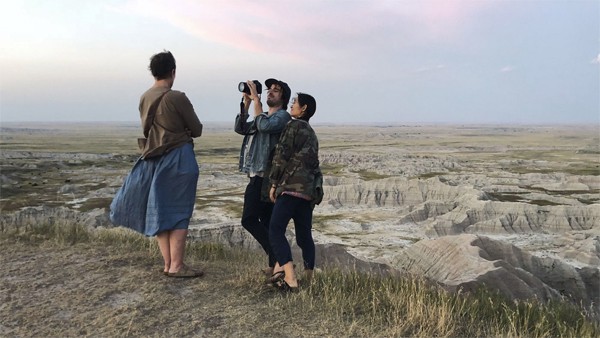 Hear me out, though, as Nomadland is worth the effort. Zhao’s ability to capture painting-like, picturesque visuals, McDormand’s flawless performance, and the story’s deeply relevant themes — which have become more prevalent in this time of COVID, in this America, compounded by the negative effects of unhinged capitalism — makes this the film that should win the Oscar. If you give yourself over to this story, which can be described as part fiction and part pseudo-documentary, you won’t regret it.
Hear me out, though, as Nomadland is worth the effort. Zhao’s ability to capture painting-like, picturesque visuals, McDormand’s flawless performance, and the story’s deeply relevant themes — which have become more prevalent in this time of COVID, in this America, compounded by the negative effects of unhinged capitalism — makes this the film that should win the Oscar. If you give yourself over to this story, which can be described as part fiction and part pseudo-documentary, you won’t regret it.
Zhao made her mark with her previous film The Rider. Like Nomadland, it used mostly non-actors (actually more so) and tells the story of a fallen rodeo star trying to find peace and purpose in his life. Its emotional intensity and beautiful visuals are masterfully woven together to put a focus on a part of rural America that is rarely given time in cinema, especially with such a sensitive, empathetic touch.
Nomadland is the logical and celebrated next step for Zhao, taking all the elements that made The Rider work and elevating them into a broader, more accessible story that reflects current America in a way that feels effortless.
The first, and maybe main, difference that allows her film to appeal to a wider audience than The Rider is casting Frances McDormand as her lead. Most will remember her recently from her expletive-laden, Oscar-winning performance in Three Billboards Outside Ebbing, Missouri. Her role here is vastly different. It’s much more internal and nuanced as opposed to her fiery, showy turn in Three Billboards. Yet both characters exude a deep-seeded vulnerability stemming from the loss of someone close to them. While all of her work, including Three Billboards, is pretty universally excellent, this role feels like a culmination of her career. She is working at the highest level, walking the thinnest tightrope, and the effect of the entire film ultimately rests on her shoulders.
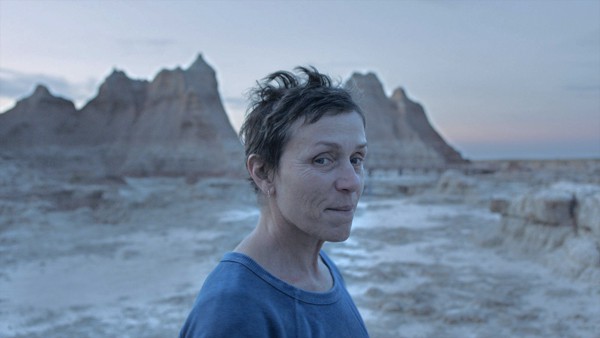
She’s our surrogate throughout the story, present in every scene, and if we don’t care about her character the film simply doesn’t work. Luckily, McDormand is one of the greatest actresses of her generation. Even knowing that, her work here is still astounding, impressive, and right up there with the very best of her career. Her presence in the film’s marketing alone has made some viewers give it more of a chance.
As I’m sure most of you know, a great performance alone doesn’t equate to a great film. Zhao utilizes McDormand’s by putting it in front of the beautiful backdrop of the American west. The visual language of the film is one that celebrates the sweeping natural beauty of the country. While McDormand’s performance is very internal, its juxtaposed with a visual spectacle of landscapes that includes what seem like endless mountains, deserts, and the road ahead.
Zhao and her cinematographer Joshua James Richards (the two also worked together on The Rider) use these images to evoke strong emotion in the film’s beginning stages, as we get little in that department from McDormand. It’s almost like we are experiencing things through her character, Fern’s, eyes. The more she travels throughout the film, seeing new sights and meeting new people, the more we see. And the more we see, the more she begins to open up.
By the end of the film, the connection we’ve made to her and to the beauty that has surrounded her journey of freedom feels deep and true. You almost become blindsided by its devastating emotional effect.
Not only are these two painting a vast, stunning visual portrait of America, they are using it to tell the intimate story of one person. It’s an incredibly ambitious choice that only works because the artists involved are tuned into each other and the material.
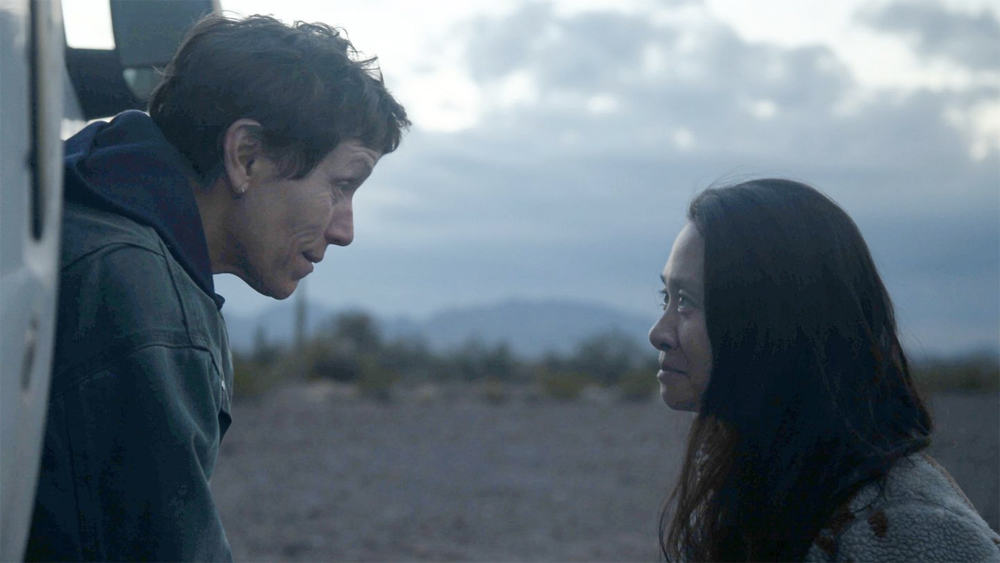
For all of its artistic flourishes, though, what really makes Nomadland a worthy Best Picture winner is its story and themes. Zhao’s film is adapted from Jessica Bruder’s non-fiction book of the same name, which focused on the post-Great Recession phenomenon of older Americans embracing transient lifestyles. Zhao used three of the people featured prominently in Bruder’s book to play themselves (or a slightly veiled version of themselves) alongside McDormand and actor David Strathairn. By using Bruder’s book, and embracing the journalistic aspects of it, Zhao’s film has an immediacy that reflects the state of many Americans today trying to navigate the loss, isolation and economic fallout from the COVID pandemic.
Early in the film, Zhao makes McNormand a seasonal warehouse worker at Amazon, tackling the physical labor for the global behemoth with none of the safety net nor the benefits of a full-time, steady job. Her temporary post ends after the holidays, and Fern is left with nowhere to go, nothing tangible to show for her work. She loads up her van, her new makeshift home, and leaves as a refugee of the working class, a group of people that the American economy has left behind, and shows no signs of welcoming back.
Zhao and her story show this dynamic without falling down the path of self-righteousness or preachy monologues. The film observes, it doesn’t judge. As we follow Fern, we realize she is one of many in her newfound itinerant lifestyle, and meet a group of nomads who embrace the freedom that comes with such a life. They support one another in their journey. Instead of dwelling on their situation, they appear to move forward and find positivity and peace outside of a country they once embraced, but now it’s failed to embrace them back.
And it’s this point-of-view of Zhao’s, combined with McDormand’s central performance and Richards images, that elevates Nomadland to not only a great film, but one that viewers from many different walks of life can connect to. It’s beautiful, engaging, original, and even whimsical in its combination of social critique, arresting imagery, and a celebration of life. Though many viewers will undoubtedly find it challenging to approach, surrendering to Nomadland’s spell is well worth the effort. Zhao has crafted a great film that’s not only worthy of your attention, but it could end up being a Best Picture winner that’s a definitive work of art for these strange times.


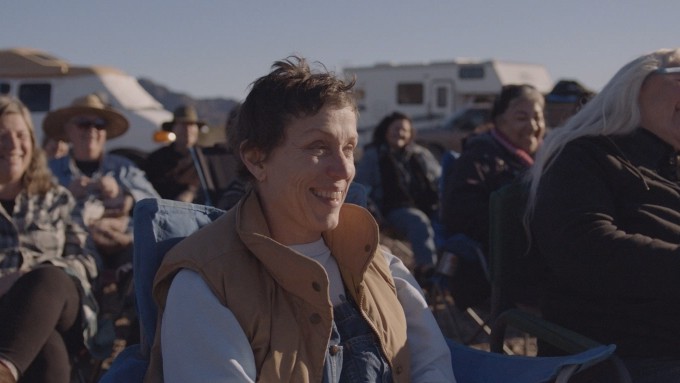
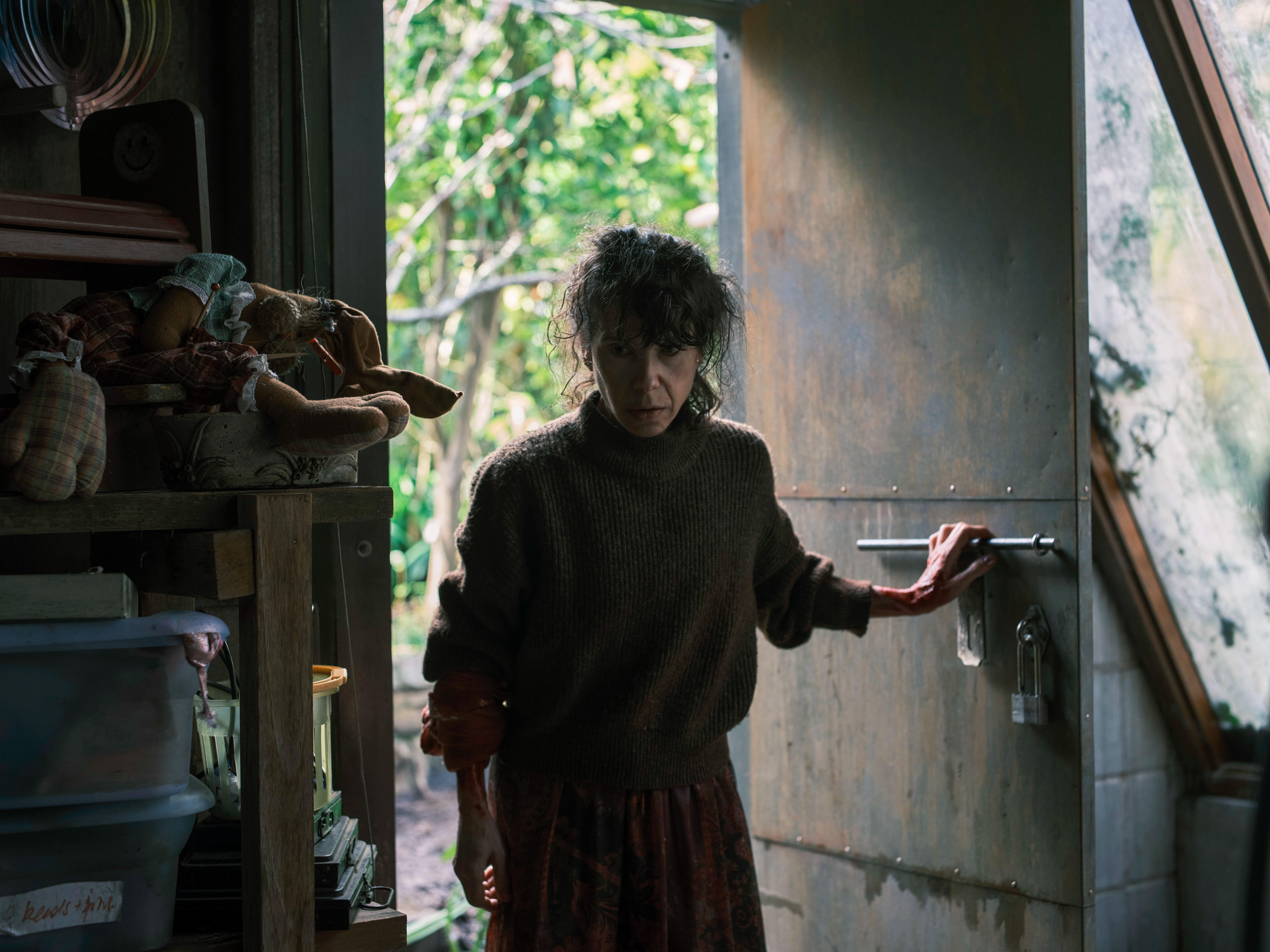
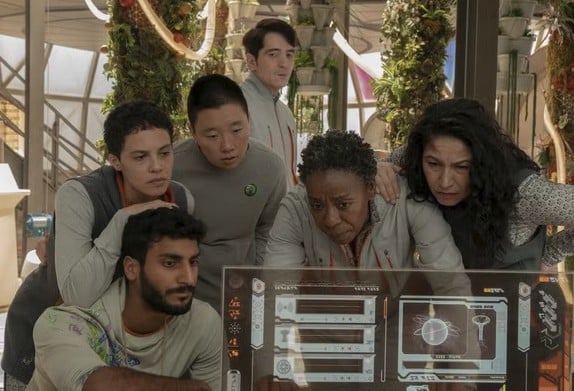
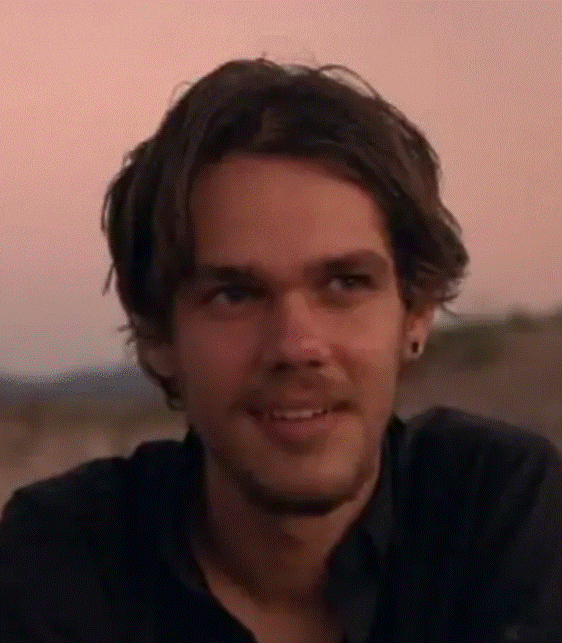



Start a watercooler conversation: